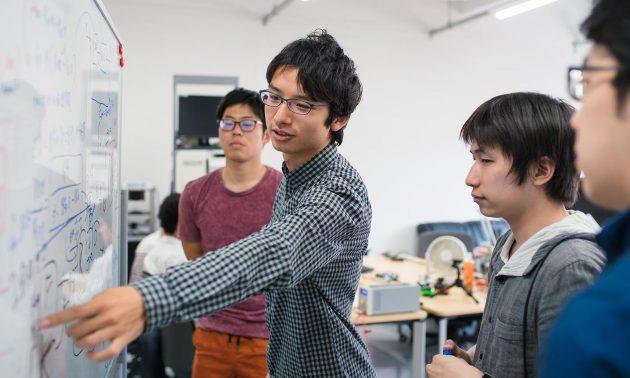
'Diversity' hides racial balancing: Asian American students
There's another side to the controversy on whether admissions policies that focus on 'diversity' are fair to high-achieving Asian Americans who apply to top US universities.
The New York Times in August highlighted the of Austin Jia, an Asian American student who was rejected by Harvard, Princeton and other ivy league schools in 2015 despite a high grade point average, nearly perfect college entrance exam scores and an impressive suite of extra-curricular activities.
The DailyBrief Must-reads from across Asia - directly to your inboxJia was understandably miffed when students from his Millburn, NJ high school, including other minorities, were admitted to these same elite institutions with seemingly lesser qualifications. Now at Duke University in North Carolina, Jia is not a plaintiff in a filed against Harvard in 2014 by the conservative Students for Fair Admissions, but he agrees with its aims.
The suit alleges the institution discriminates against Asian American students under a racial quota that unfairly limits the number of Asians admitted to the school annually. Over 60 Asian Americans groups have filed a separate complaint against Harvard over the same issue.
Jia argues that colleges can pursue diversity in their admissions policies while being fair to Asian American applicants.
'While I do agree that there are tangible benefits to having a student body with diverse narratives and cultural backgrounds, I don't think that holding other races to a higher standard is a fair price to pay,' he told Asia Times via email. "I think it's possible to find ways to be fair to Asian applicants while still promoting diversity in college admissions. Holistic evaluation is fine if there is transparency, and if such a method is not used as a disguise for racial balancing.'
He also believes that affirmative action should be based on 'socioeconomic' factors rather than race. If members of specific minorities suffer from inherent disadvantages such as police harassment or inferior primary school educations, Jia says specific solutions should be directed at these areas to remedy racial inequality, rather than through college admissions policies.
Quiet, good at mathYukong Zhao, the president of the Asian American Coalition for Education, the group that lodged the complaint against Harvard also believes that diversity in the admissions shouldn't outweigh traditional benchmarks such as academic performance. 'When promoting diversity or applying 'holistic evaluation,' colleges should not deviate from their original purpose — selecting the best-qualified students and educating them to make the best contribution to our nation and society,' he said in an email to Asia Times.
Zhao notes research showing that many outstanding Asian Americans students are rejected by elite US universities because they are 'good at math, are quiet and play the violin.' He agrees that colleges should reject such applicants for their public policy departments. But he thinks the same applicants should be admitted if they are applying for STEM (science, technology, engineering and mathematics) majors.
'Albert Einstein had the exact same profile when he was of college age,' Zhao argued. 'Such a profile didn't prevent him from becoming one of the world's best scientists.'
Comments
Legal Disclaimer:
MENAFN provides the
information “as is” without warranty of any kind. We do not accept
any responsibility or liability for the accuracy, content, images,
videos, licenses, completeness, legality, or reliability of the information
contained in this article. If you have any complaints or copyright
issues related to this article, kindly contact the provider above.


















Comments
No comment